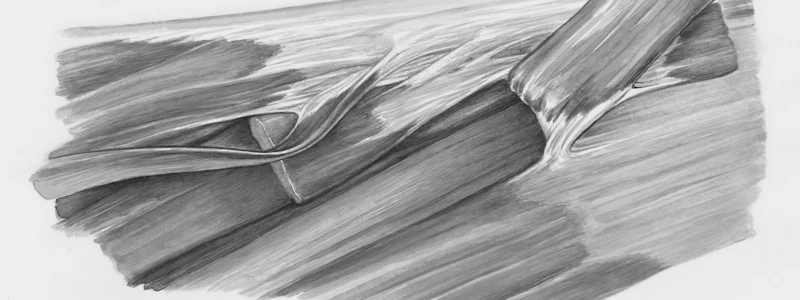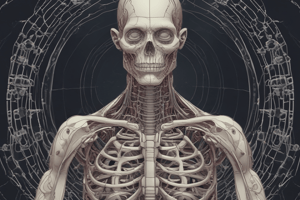Podcast
Questions and Answers
What is a body system?
What is a body system?
- A type of tissue
- A group of organs that work together (correct)
- A single organ
- An organism
What is an organ?
What is an organ?
A body part made up of different tissues joined together to perform a specific function.
What defines an organism?
What defines an organism?
A complete living system.
What is the digestive process?
What is the digestive process?
What is the excretory system responsible for?
What is the excretory system responsible for?
What is the primary function of the nervous system?
What is the primary function of the nervous system?
What does the circulatory system do?
What does the circulatory system do?
What is the function of the respiratory system?
What is the function of the respiratory system?
What is the skeletal system?
What is the skeletal system?
What is the purpose of the muscular system?
What is the purpose of the muscular system?
Flashcards are hidden until you start studying
Study Notes
Body System Overview
- Body systems consist of groups of organs that collaborate for specific tasks.
- An organ is a structure made up of various tissues working together for a designated function, such as the heart or brain.
- An organism represents a fully functioning living system.
Digestive System
- The digestive system breaks down food into smaller components for absorption into the bloodstream.
- Nutrients from digested food provide energy for all body cells.
Excretory System
- Responsible for waste removal from the body.
- Helps maintain water balance, ensuring necessary substances exit the system.
Nervous System
- Comprises a network of nerves that communicate signals between the brain and other body parts.
- Functions as the control and communication system, regulating movements and sensory information.
Circulatory System
- A vital system that transports essential materials, like oxygen and nutrients, to cells.
- Removes waste products generated by cellular processes, ensuring homeostasis.
Respiratory System
- Consists of organs that facilitate oxygen intake and carbon dioxide expulsion.
- Plays a crucial role in maintaining respiratory health and supporting cellular respiration.
Skeletal System
- The framework of bones and connective tissues that provides structure and support to the body.
- Essential for movement, protection of organs, and storage of minerals.
Muscular System
- Comprises tissues that facilitate movement of body parts and function of internal organs.
- Muscle tissue is crucial for voluntary and involuntary movements, allowing the body to perform various activities.
Studying That Suits You
Use AI to generate personalized quizzes and flashcards to suit your learning preferences.




